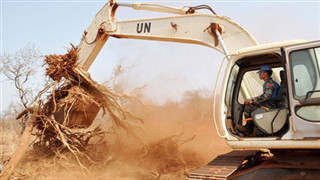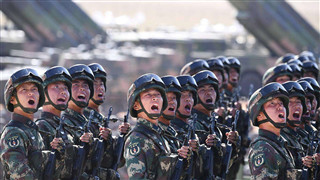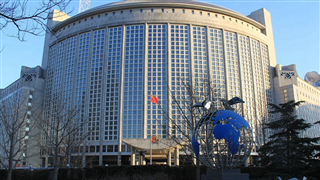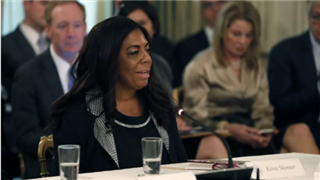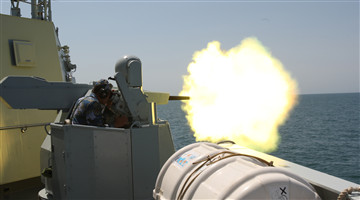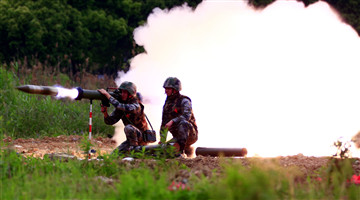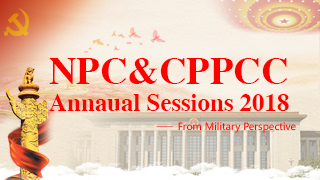Recently, the US deployed the USS Abraham Lincoln Carrier Strike Group and a bomber task force to the Persian Gulf. Some analysts are speculating about the possibility that US military might strike against Iran.
The US has threatened to launch military strikes against other countries more than once and it can even be said that the US has always been in a state of war since the end of the Cold War. These wars are often interpreted as US’s move to secure its strategic resources such as oil or to acquire more favorable strategic positions over other major countries. But frankly, these explanations overestimate US’s long-term strategic planning capability when it launches war and also underestimates its warlike tradition.
First, many wars that US participated in are not closely related to its major strategic interests.
This has been particularly prominent since the end of the Cold War. Foreign wars under US military intervention are not closely related to securing the US major strategic interests. For example, the Battle of Mogadishu in 1993, the Kosovo War in 1999, War in Afghanistan (2001-present), the Iraq War (2003–11), the First Libyan Civil War (2011), and the Syrian Civil War (2011-Present), and so on.

The US has made various different definitions for its military actions, such as transforming the functions of the United Nations, humanitarian intervention, large-scale counter-terrorism operations, eliminating weapons of mass destruction, and forcing democratic transition, to name a few. The wars involving the US military are actually quite random and often highly controversial both domestically and internationally since there is little or no major US strategic interest involved.
Second, the US caprice in using warfare is closely linked to the security concept formed during its development process.
War and expansion are the inherent traditions of the US diplomacy. The fundamental logic behind it is that “the US security begins with the outside” or “US own security is fundamentally dependent on the Americanization of the outside world.”
The frequent war launched by the US reflects this logic and shapes the national character. Since winning the War of Independence, the US has believed that if weak countries or political forces cannot be Americanized, then the US has the legitimacy to transform or even expel them.
In the 19th century, the US expanded in North America by slaughtering the Indians, plundering and dismembering Mexico, and expelling Spain until it completely destroyed its overseas colonial empire. During the Cold War in the 20th century, the US spent 14 years in Vietnam War which basically involves no key geostrategic interest with the US. The series of wars against the weak countries after the Cold War are without exception.
In contrast, the US tends to respect the special interests of countries with superior or roughly equal strengths and seeks to negotiate and resolve conflicts with them. The way that the US deals with the UK in the 19th century North America and the Soviet Union in the 20th century are examples.
Arguably, the US is more likely to resort to war to resolve deep differences with weak and small countries, but is usually very cautious of using the option of war when it deals with differences with countries with enough power.
The geostrategic logic behind the considerable number of wars involving the US is very vague, and in contrast, the logic of national strength versus growth is quite clear. The former leads to the frequent involvement of the US in wars in many parts of the world, and the latter leads to the extreme vulnerability of its relationship with other major powers.
Unlike the logic that most countries do not resort to war unless it has to do with their core interests, the US is so obsessed with the Americanization of the world that it is keen to initiate or participate in wars within the geographic scope of its strength. The usual notion of resorting to war for energies like oil or geostrategic advantages indeed underestimates US enthusiasm for war.
Third, since its independence, the US has behaved in many ways that are incompatible with the world.
As regards the American tradition, the United States is not a stick-in-the-mud nation. When it is strong, it will do everything in its power to transform the world. While it is weakened or frustrated, it tends to develop in isolation, stay alone, and maintain its freedom of movement.
Many wars involving the US since the end of the Cold War can be described as a portrayal of its action styles. The record of the capricious US intervention in different regions or the transformation of wars is not graceful as it usually leads to chaos, countless civilian deaths, and large-scale refugee flows. Countries such as Iraq, Syria, Libya, and Afghanistan, which are subjects of US war transformation, are all mired in civil wars or quagmire of separation.
In addition, the emotional and irrational characteristics of the war decisions by the US after the Cold War are obvious. Some mainstream media in the US have exaggerated the international events with existing ideological biases, which has aggravated the possibility that policy makers make wrong decisions under the pressure of public opinion. The high degree of “polarization” in US domestic politics makes it easier for policy makers to irrationally use war to alleviate or transfer domestic crises. All these have increased the impulsiveness and arbitrariness of the US involvement in wars.
Generally speaking, the dissatisfaction with the existing international order and the stubborn practice of transforming other countries with war are largely derived from the historical traditions of the US. It is consistent and the contemporary practice of such mentality has brought profound division and lasting chaos to the world.
After in-depth systematic research of American diplomatic history, the renowned American scholar Robert Kagan deeply realized the “warlike” and “aggressive” traditions of the United States. Mr. Kagan concluded that the US is a “Dangerous Nation”. The conclusion, though not pleasant, does objectively summarize the essence of American diplomacy.
Disclaimer: The author is Li Haidong, professor of the Institute of International Relations at the China Foreign Affairs University. This article is originally published on Global Times, and is translated from Chinese into English and edited by the China Military Online. The information, ideas or opinions appearing in this article do not reflect the views of eng.chinamil.com.cn.
